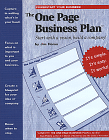"…Because its purpose is to create a customer, business has two—and only two functions: Marketing and innovation. Marketing and innovation produce results, all the rest are costs." Peter Drucker
1. Understand Your Product
If you can’t state it, your customers won’t see, understand, or want it
- What are you REALLY selling?
You must be able to articulate this is a way that makes others want to buy from you. - Features vs Benefits
Always focus attention on the benefit to your customer as a result of using your product or service. - Unique Selling Proposition/Competitive Advantage
What makes you/your product distinctively different?
2. Have a Marketing Plan
Whatever marketing plan you intend to roll out, test first to measure your success probability and to reduce the risk of failure. Test prices. . .Test product. . .Test headlines. . .Test everything. Have a diversified effort and then continue to test EVERYTHING. Some areas to consider:
- Public Relations
- Publicity
- Direct Mail
- Personal Selling
- Trade Shows/Industry Participation
- Newsletters
- Specialty Items
- Articles, Books, eBooks & eProducts
- Speeches, Seminars, Workshops
- Referrals
- Networking
- Ads – newspapers, signs, flyers, radio, TV, Yellow Pages, etc.
- Thank you notes & gifts
- Coupons, Special Offers, etc.
- Websites, email signatures, etc.
3. Understand Your Customer
How do you create real value? By understanding what's important to your customer or client…and then providing it
- Who is your “ideal” client?
Ask yourself:
"What do I know about them, their buying/spending habits?"
"Where would my customer look for me?" Then make sure you put "yourself" (your coupons, advertisements, website address, etc.) in the places where they can find you. - What do your clients need? How can you find out?
Ask your clients:
"How can I help you?"
"How can I make it easy for you to buy from me?"
And of course: "What else?" (do you want, need, wish to tell me…)
4. Value Existing Customers
- Follow their needs
You can use a simple data base to track customer buying patterns as well as the effectiveness of your marketing plan. Determine the "lifetime" value of your customers and clients, and continue to find ways to keep them loyal by providing what they want and need. - Special offers/preferential treatment
Existing customers have already made a commitment (they've spent money with you), don't reserve your “specials” just for new customers – reward the loyal (existing) ones, too. It's much easier and more cost effective to sell to existing customers than to try to find new ones. Surprise and delight your existing customers by giving them "freebies" or added value from time to time.
5. Collaborative Marketing
- Networking
- Host/Beneficiary Relationship
Consider who you know that you could "team up with". People with complimentary businesses (those who market to similar customers) provide a great non-competitive way to expand your own customer base. (It works the other way, too!) By the way, have you ever asked your suppliers or vendors for help in growing your business? They have an interest in keeping you in business, too. - Referrals
Remind your customers that your business grows through their referrals. And then, make sure you thank and give value back to those who are willing to share their satisfaction of your services with others.
Networking is really relationship building. When you want to expand your market, an effective way to have instant credibility is to use the influence of someone who is well respected. Remember to provide value, not only in the product or service you are offering to the "new" network, but also to the person who is introducing you to their network.
What makes some businesses more successful in the marketplace? They continue to explore new ways to bring in business. Remember what marketing guru Jay Abraham has to say about your marketing plan:
When you limit your business to doing things the same way every other competitor of yours does it, you can only produce modest, incremental gains at best.
© 1998-2001 – Katie Darden, Career Life Institute
